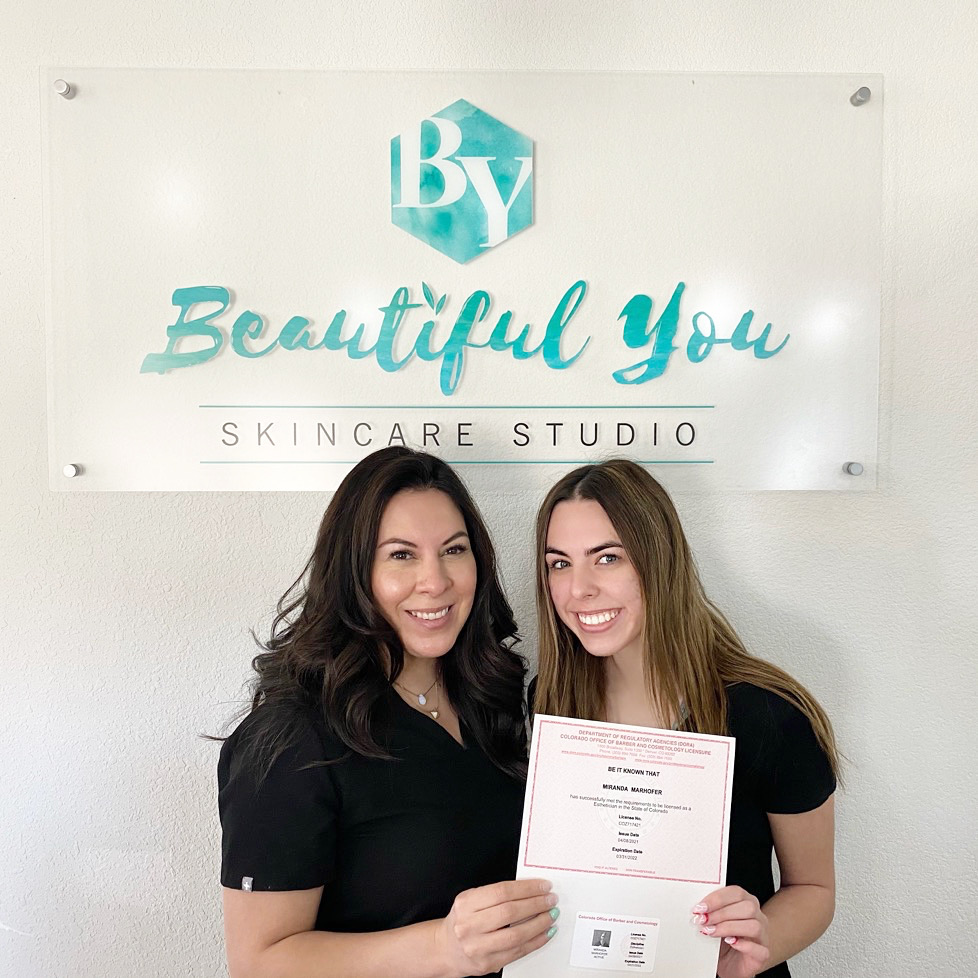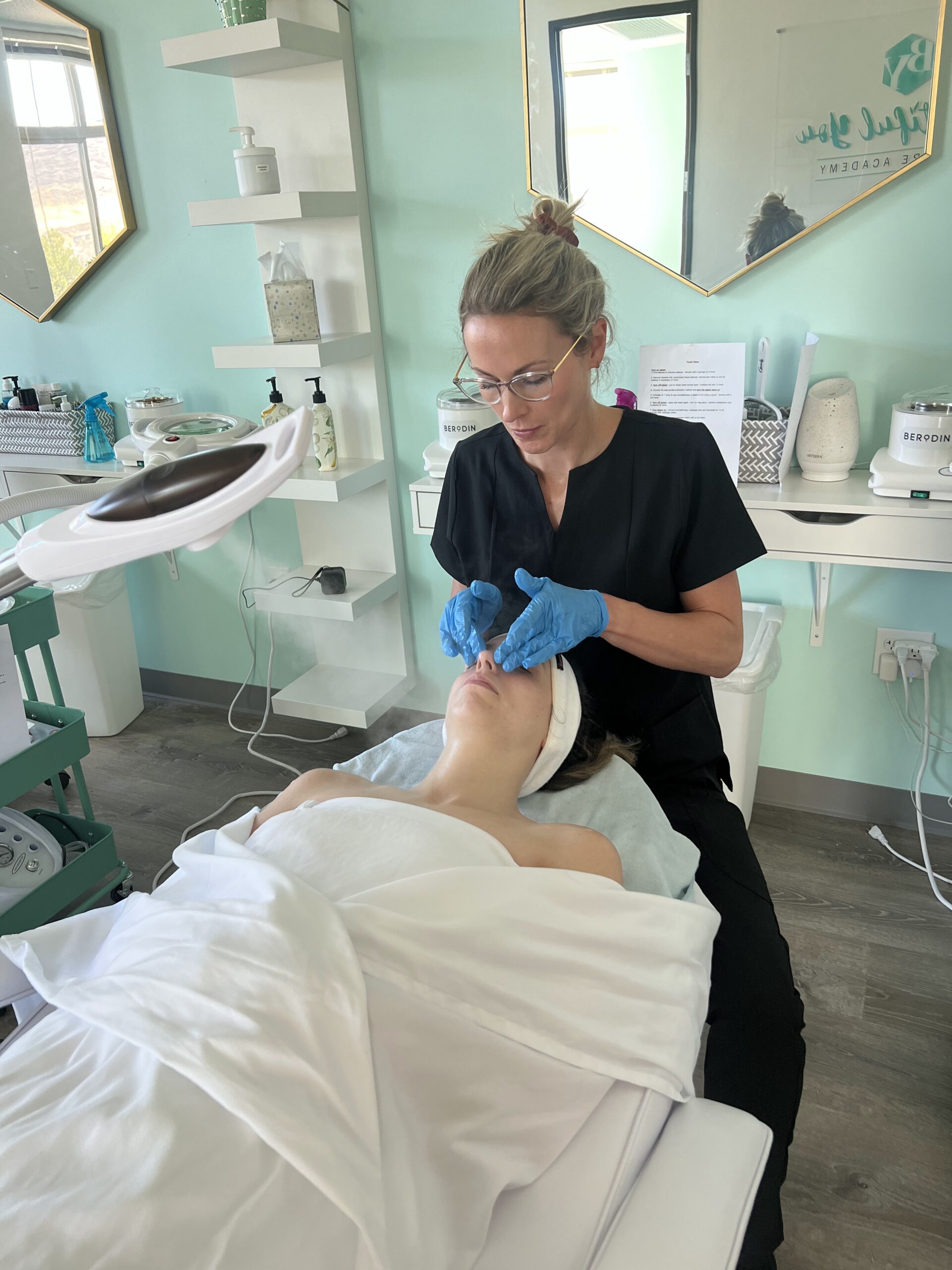October 15, 2025
Building Client Trust: Safely Performing Chemical Peels with Advanced Education

In the competitive world of esthetic skincare, trust is the foundation of every successful client relationship. Nowhere is this trust more critical than when performing chemical peels—treatments that, while highly effective, carry inherent risks if not executed properly. Clients are literally putting their skin in your hands, and they need confidence that you possess not just basic competency, but advanced expertise.
Chemical peels remain among the most requested treatments in professional skincare practices, valued for their ability to address everything from acne and hyperpigmentation to fine lines and uneven texture. However, the difference between a glowing testimonial and a potential lawsuit often comes down to the quality of your training and your commitment to safety protocols.
In this comprehensive guide, we’ll explore how advanced chemical peel training builds the expertise necessary to earn and maintain client trust while delivering exceptional results safely and effectively.
Understanding the Stakes: Why Chemical Peel Safety Matters
Chemical peels use acid solutions to exfoliate skin at varying depths, triggering controlled damage that prompts cellular turnover and regeneration. While this process produces remarkable results, it also involves real risks including burns, scarring, infection, and hyperpigmentation when performed incorrectly.
The Consequences of Inadequate Training
Estheticians who attempt to perform chemical peels without proper training put both their clients and their careers at risk. Common complications from improperly performed peels include:
- Chemical burns requiring medical intervention
- Post-inflammatory hyperpigmentation, especially on darker skin tones
- Infections from compromised skin barriers
- Scarring from excessive depth or improper technique
- Allergic reactions from failure to patch test or identify contraindications
Beyond the physical harm to clients, these complications damage your professional reputation, potentially leading to negative reviews, lost business, and even legal action. In an age where a single negative online review can significantly impact your practice, the importance of performing chemical peels safely cannot be overstated.
Building Trust Through Demonstrated Competence
Clients today are more informed than ever before. They research treatments online, read reviews, and ask detailed questions about your qualifications. When you can confidently discuss your advanced training, explain your safety protocols, and demonstrate comprehensive knowledge of chemical peel science, you immediately establish credibility and trust.
Advanced certification in chemical peels signals to potential clients that you’ve invested in your education and take their safety seriously. This professional distinction sets you apart from competitors and justifies premium pricing for your services.
The Foundation: What Advanced Chemical Peel Training Covers
Not all chemical peel courses are created equal. Basic esthetician programs often provide only introductory knowledge of superficial peels, leaving practitioners unprepared for the nuances of working with different peel types, skin conditions, and client populations. Advanced training fills these critical gaps.
Comprehensive Acid Chemistry
Understanding the science behind different peeling agents is fundamental to safe practice. Advanced courses provide in-depth education on:
Alpha Hydroxy Acids (AHAs) including glycolic acid, lactic acid, and mandelic acid—their molecular sizes, penetration depths, and ideal applications for different skin concerns.
Beta Hydroxy Acids (BHAs) particularly salicylic acid, which is lipid-soluble and ideal for acne-prone and oily skin types.
Trichloroacetic Acid (TCA) peels that penetrate to medium depths and require precise application techniques to avoid complications.
Combination peels like Jessner’s solution that blend multiple acids for enhanced results.
Specialty peels including enzyme peels, retinol peels, and newer formulations that address specific concerns.
Advanced training teaches you not just what these acids do, but how they interact with different skin types, medications, and conditions. This knowledge allows you to select the most appropriate peel for each client while minimizing risk.
Detailed Skin Analysis and Assessment
Perhaps the most critical component of safe chemical peel application is thorough pre-treatment assessment. Advanced training emphasizes comprehensive evaluation skills including:
Fitzpatrick Skin Typing to assess melanin content and predict risk for post-inflammatory hyperpigmentation. Darker skin tones (types IV-VI) require modified approaches and lower concentrations to prevent discoloration.
Skin Condition Evaluation to identify conditions that may contraindicate peels or require special considerations, including rosacea, eczema, psoriasis, and active infections.
Medical History Review to identify medications like retinoids, antibiotics, and isotretinoin that affect skin sensitivity and healing. Clients on these medications may need to discontinue use or avoid peels entirely.
Lifestyle Factor Assessment including sun exposure habits, skincare routines, and realistic recovery time availability.
This comprehensive assessment process demonstrates professionalism and care, immediately building client confidence that you’re thorough and safety-conscious.

Proper Application Techniques
The actual application of chemical peels requires precision, timing, and technique that can only be mastered through hands-on training under expert supervision. Advanced courses provide practical experience in:
Skin preparation including proper cleansing and degreasing to ensure even penetration and consistent results.
Application methods for different peel types—whether using gauze, brushes, cotton-tipped applicators, or specific layering techniques.
Timing and neutralization protocols, knowing exactly when to neutralize self-neutralizing peels versus those requiring active neutralization.
Monitoring frost patterns on TCA peels to gauge penetration depth and know when to stop.
Managing hot spots where product may penetrate more deeply in certain facial areas.
These hands-on skills cannot be learned from books or videos alone. Practical training with real peels on models, supervised by experienced instructors, builds the muscle memory and confidence necessary for safe, effective application.
Contraindications and Risk Management
A hallmark of advanced training is comprehensive education on contraindications—situations where chemical peels should not be performed or require special modifications. Knowledgeable estheticians who can identify these contraindications protect clients from harm while demonstrating expertise.
Absolute Contraindications
Advanced training teaches you to recognize conditions that absolutely prohibit chemical peel treatments:
- Active herpes simplex infections (cold sores)
- Open wounds or broken skin in treatment area
- Recent isotretinoin use (typically within 6-12 months)
- Pregnancy and breastfeeding for certain peel types
- Active skin infections or diseases
- History of keloid scarring
- Recent radiation therapy
Turning away clients with these contraindications might feel like lost revenue, but it’s essential for safety and builds long-term trust. Clients respect practitioners who prioritize their wellbeing over profit.
Relative Contraindications
Advanced courses also address relative contraindications—situations requiring extra caution, modified protocols, or additional client education:
- Darker skin tones requiring lower concentrations and gentler acids
- Recent waxing or other facial procedures
- Current retinoid or AHA/BHA use requiring pre-peel discontinuation
- Unrealistic client expectations requiring education and potential treatment modification
- Limited sun avoidance capability requiring treatment timing adjustments
Learning to navigate these situations with clear communication and modified protocols demonstrates sophisticated clinical judgment that clients notice and appreciate.
Pre and Post-Treatment Protocols That Build Confidence
Advanced chemical peel training emphasizes that the treatment itself is just one component of a comprehensive protocol. Proper preparation and aftercare are equally important for results and safety.
Pre-Treatment Preparation
Professional training teaches you to implement pre-treatment protocols that prime the skin and minimize complications:
Skin conditioning regimens typically lasting 2-4 weeks before treatment, using low-percentage acids and retinoids to prepare skin and even out penetration.
Patch testing for clients with sensitive skin or unknown reactions to specific ingredients.
Prophylactic antiviral medication for clients with history of cold sores, preventing herpes outbreaks triggered by peel treatments.
Clear written instructions detailing which products to discontinue before treatment and when.
When you provide clients with detailed pre-treatment instructions and explain the rationale behind each step, you demonstrate thoroughness and professionalism that builds confidence.
Post-Treatment Care and Follow-Up
The period immediately following a chemical peel is critical for both results and complication prevention. Advanced training equips you to:
Provide comprehensive aftercare instructions covering cleansing, moisturizing, sun protection, and what to expect during the healing process.
Educate about normal vs. concerning symptoms so clients can distinguish expected peeling and redness from signs of complications requiring immediate attention.
Schedule appropriate follow-up to monitor healing and address any concerns, demonstrating ongoing commitment to client outcomes.
Remain accessible for questions or concerns during the healing period, providing phone or email support that reinforces trust.
Clients who feel supported throughout the entire treatment journey become loyal advocates for your practice.
The Business Benefits of Continuing Education for Estheticians
Investing in advanced chemical peel certification isn’t just about safety and ethics—it’s also smart business. The expertise gained through quality education delivers tangible returns.
Premium Pricing Justification
Clients willingly pay more for services performed by highly trained professionals. When you can articulate your advanced certifications, explain the sophisticated science behind your treatment selections, and demonstrate comprehensive safety protocols, premium pricing becomes justified and expected.
Reduced Liability and Insurance Costs
Proper training significantly reduces your risk of complications and subsequent legal issues. Many professional liability insurance providers offer reduced rates for practitioners with advanced certifications, and some require specific training for coverage of certain procedures.
Expanded Treatment Menu
Advanced training often covers multiple peel types and depths, allowing you to offer a broader menu of services tailored to diverse client needs. This versatility increases booking opportunities and client retention.
Competitive Differentiation
In markets saturated with estheticians, advanced credentials set you apart. Marketing materials that highlight your specialized training attract discerning clients seeking expertise rather than simply the lowest price.
Confident Marketing
When you’re confident in your skills and safety protocols, marketing becomes easier and more authentic. Your social media posts, website content, and client consultations naturally convey expertise that attracts ideal clients.
Client Communication: Demonstrating Your Expertise
Advanced training should enhance not just your technical skills but also your ability to communicate with clients in ways that build trust and confidence.
The Consultation Process
Use consultations to showcase your expertise through:
Detailed skin analysis using proper terminology while explaining findings in accessible language that educates clients about their skin.
Customized treatment recommendations that demonstrate you’re considering their unique skin type, concerns, lifestyle, and goals rather than offering a one-size-fits-all approach.
Transparent risk discussion addressing potential side effects and complications honestly while explaining how your protocols minimize these risks.
Realistic expectation setting about results, required treatment series, and maintenance needs.
This thorough approach shows clients you’re knowledgeable, honest, and invested in their outcomes.
Showcasing Credentials
Don’t be shy about displaying your advanced certifications in your treatment space and marketing materials. Certificates on the wall, mentions in your bio, and references during consultations all signal your commitment to excellence.
Consider creating before-and-after portfolios (with client permission) that demonstrate your skill with various peel types and skin concerns. Visual proof of your expertise is powerful for building trust with prospective clients.
Clients appreciate practitioners who stay current with the latest developments, and your ongoing education provides fresh marketing content that keeps your practice relevant.
When clients trust you with their skin, they become loyal patrons who return for multiple treatments, purchase retail products, and refer friends and family. This trust is earned through demonstrated competence, comprehensive safety protocols, clear communication, and genuine care for client outcomes—all skills developed through quality advanced training.
Ready to build the expertise that earns client trust? Beautiful You Skincare Academy offers comprehensive chemical peel courses that provide the advanced knowledge and hands-on experience necessary to perform these powerful treatments safely and effectively. Take the next step in your professional development and discover how advanced training transforms both your skills and your practice.
